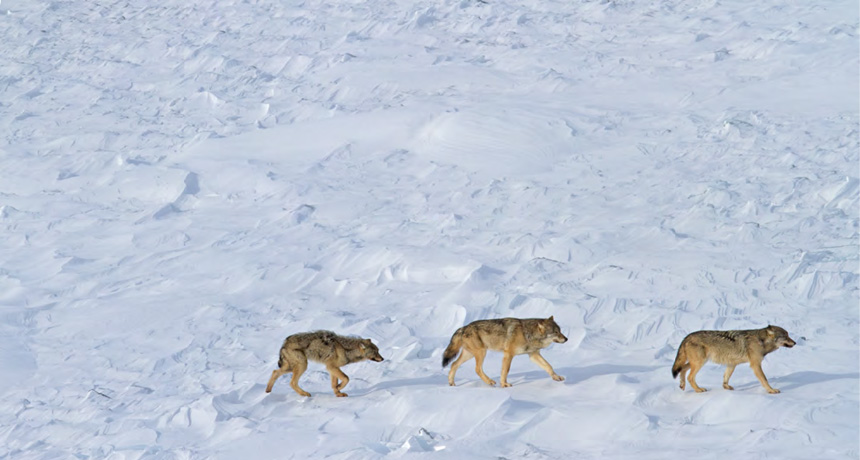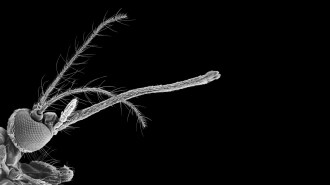Only three wolves left on Michigan island
Inbreeding the likely cause of dwindling numbers

Only one pup (left) and two adult wolves remain on Isle Royale in northern Michigan, the site of a decades-long study of wolf-moose interactions. The pup appears hunched, with an extra skinny waist and deformed tail. Researchers think it won’t live more than a year.
ROLF PETERSON







